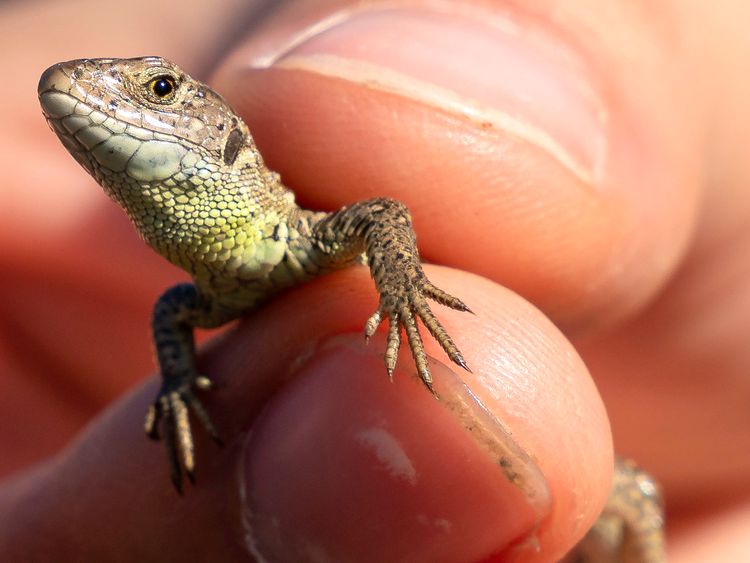A group of Britain's rarest lizards are to be tracked using tiny radio tags as they are re-released into the wild by a Hampshire zoo.
A group of 24 sand lizards have been fitted with transmitters to track their movements and behaviour as they are reintroduced into the wild by Marwell Wildlife in Hampshire.
The tiny radio tags, which weigh just 0.29 grams, will help experts understand the lizards' behaviour as they are put into the wild at Eelmoor Marsh, a site of special scientific interest in Farnborough.
The zoo will put 86 lizards back into the wild, but only 24 of these will carry the transmitters.
It will be the first time the radio tags have been used to observe sand lizards in the UK.
The tags will fall off after a short time, or when the lizard sheds its skin.

Rachel Gardner, PhD student at the University of Southampton, said: "Because they blend into the environment and spend time foraging and hiding in dense undergrowth, sand lizards can be incredibly difficult to see.
"Being able to track them in this way is really exciting, I can't wait to see how far they go, how quickly, and exactly how they use the habitat."
She added: "Having spent the last year rearing the lizards in captivity, it's wonderful to finally release them into their natural habitat and apply this novel technology to see how they do."

The sand lizard, Lacerta agilis, inhabits Europe and Asia but the species has disappeared from most of England and Wales.
More from Hampshire
Its numbers are now increasing following conservation efforts.
The zoo is reintroducing 250 sand lizards to Eelmoor Marsh with a total of 2,000 across the south of England introduced over the past 25 years.
[contf] [contfnew] 
Sky News
[contfnewc] [contfnewc]






